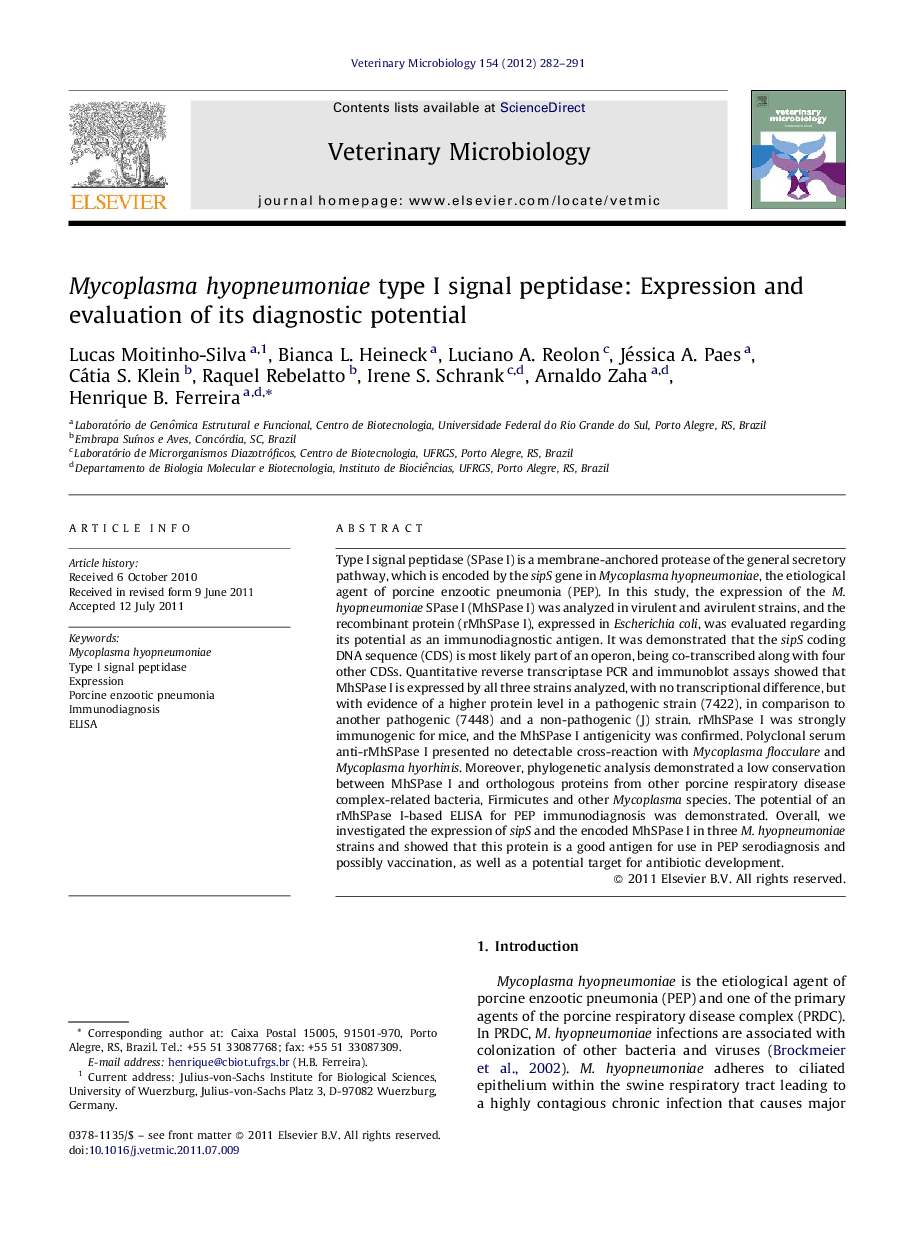| Article ID | Journal | Published Year | Pages | File Type |
|---|---|---|---|---|
| 2467400 | Veterinary Microbiology | 2012 | 10 Pages |
Type I signal peptidase (SPase I) is a membrane-anchored protease of the general secretory pathway, which is encoded by the sipS gene in Mycoplasma hyopneumoniae, the etiological agent of porcine enzootic pneumonia (PEP). In this study, the expression of the M. hyopneumoniae SPase I (MhSPase I) was analyzed in virulent and avirulent strains, and the recombinant protein (rMhSPase I), expressed in Escherichia coli, was evaluated regarding its potential as an immunodiagnostic antigen. It was demonstrated that the sipS coding DNA sequence (CDS) is most likely part of an operon, being co-transcribed along with four other CDSs. Quantitative reverse transcriptase PCR and immunoblot assays showed that MhSPase I is expressed by all three strains analyzed, with no transcriptional difference, but with evidence of a higher protein level in a pathogenic strain (7422), in comparison to another pathogenic (7448) and a non-pathogenic (J) strain. rMhSPase I was strongly immunogenic for mice, and the MhSPase I antigenicity was confirmed. Polyclonal serum anti-rMhSPase I presented no detectable cross-reaction with Mycoplasma flocculare and Mycoplasma hyorhinis. Moreover, phylogenetic analysis demonstrated a low conservation between MhSPase I and orthologous proteins from other porcine respiratory disease complex-related bacteria, Firmicutes and other Mycoplasma species. The potential of an rMhSPase I-based ELISA for PEP immunodiagnosis was demonstrated. Overall, we investigated the expression of sipS and the encoded MhSPase I in three M. hyopneumoniae strains and showed that this protein is a good antigen for use in PEP serodiagnosis and possibly vaccination, as well as a potential target for antibiotic development.
